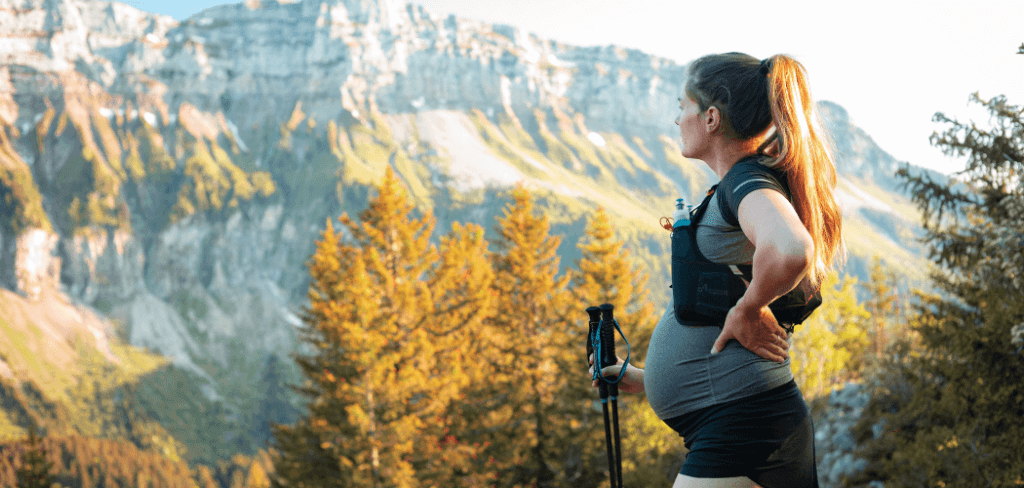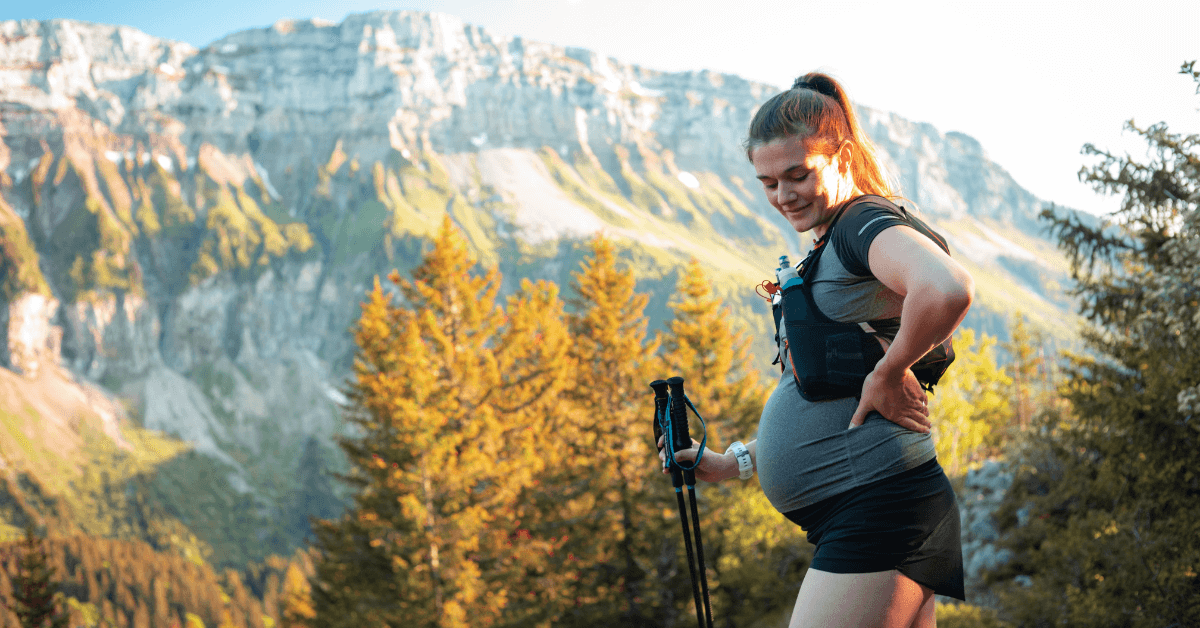Hiking is a popular activity for many people, but it can be especially challenging for pregnant women. As the body changes during pregnancy, it can become more susceptible to certain types of pain, including foot and ankle pain. This article will explore the causes of foot and ankle pain during pregnancy and provide tips for managing it while hiking.
Whether you are an experienced hiker or just starting out, it is important to understand the potential risks and take steps to protect yourself and your growing baby. So, let’s dive in and explore the topic of hiking during pregnancy and the potential foot and ankle pain it can cause.
Can Hiking Cause Foot And Ankle Pain During Pregnancy?
Yes, hiking can cause foot and ankle pain during pregnancy because as the body changes during pregnancy, it becomes more susceptible to certain types of pain, including foot and ankle pain. There are several factors that contribute to foot and ankle pain if hiking while pregnant, including changes in weight, hormones, and the way the body moves. We’ll take a look at each in detail below.
1. Weight Of The Body
One of the main causes of foot and ankle pain during pregnancy after hiking is the extra weight that the body is carrying. As the baby grows, the weight of the uterus and the baby can put extra stress on the feet and ankles. This can lead to pain, swelling, and even injuries after one hikes. In addition, the ligaments in the feet and ankles can become more relaxed due to the hormone relaxin, which is released during pregnancy. This can make the feet and ankles more prone to sprains and strains.
2. Movement Of The Body
Another factor that can contribute to foot and ankle pain after hiking while pregnant is the way the body moves. As the belly grows, the center of gravity changes, which can make it harder to balance and walk properly. This can put extra stress on the feet and ankles and can lead to pain and injuries. Additionally, pregnant women may experience fatigue and shortness of breath, which can make it more difficult to hike, especially on steep terrain or longer trails.
How To Avoid Foot And Ankle Pain While Hiking During Pregnancy
To manage foot and ankle pain during pregnancy, it is important to take steps to protect the feet and ankles while hiking. This can include wearing supportive shoes with good arch support, taking regular breaks to rest the feet and ankles, and avoiding steep terrain or long hikes. Additionally, stretching before and after hiking can help to reduce the risk of pain and injuries.
Another important step is to stay hydrated, as dehydration can lead to swelling in the feet and ankles. Pregnant women should aim for at least eight glasses of water a day and even more when hiking.
It is also a good idea to consult with a doctor or a physical therapist before starting a hiking program during pregnancy. They can help to identify any potential risks and provide guidance on how to stay active and healthy during pregnancy.
In addition, pregnant women should also pay attention to their bodies. If they experience any pain, swelling, or discomfort, they should stop hiking and seek medical attention right away.
In conclusion, by taking steps to protect the feet and ankles, staying hydrated, and consulting with a doctor or physical therapist, pregnant women can continue to hike safely and comfortably throughout their pregnancy.
It’s also important to mention that hiking during pregnancy should be avoided during high-risk pregnancies, as well as in situations where the mother-to-be has pre-existing health conditions that may be exacerbated by hiking. As always, it is best to consult with a healthcare professional before starting any exercise program during pregnancy.
Related: Why Don’t Sherpas Stand On Top Of Mount Everest?
How To Heal Foot And Ankle Pain Caused By Hiking While Pregnant

If a pregnant woman experiences foot and ankle pain after a hike, there are several things she can do to alleviate the pain and prevent further injury.
First and foremost, it is important to rest the feet and ankles. This means avoiding any activities that put extra stress on the feet and ankles, such as hiking, running, or standing for long periods of time.
Second, ice can be applied to the affected area to reduce inflammation and pain. Ice should be applied for 20-30 minutes at a time, several times a day.
Third, over-the-counter pain relievers such as ibuprofen can be taken to reduce pain and inflammation. However, it is important to consult with a healthcare professional before taking any medications during pregnancy.
Fourth, elevate the feet and ankles whenever possible, to reduce swelling and inflammation.
Fifth, stretching and strengthening exercises can help to improve flexibility and strength in the feet and ankles. This can include exercises such as ankle circles, heel raises, and calf stretches.
Arch Support
Lastly, it is also important to wear supportive shoes with good arch support and avoid walking or standing on hard surfaces for extended periods of time. If the pain persists, it’s best to seek medical attention.
It’s important to note that foot and ankle pain during pregnancy can also be a sign of other conditions such as gestational diabetes, preeclampsia, or varicose veins, so it’s best to consult with a healthcare professional to rule out any underlying conditions.
In conclusion, if a pregnant woman experiences foot and ankle pain after a hike, it is important to rest the feet and ankles, apply ice, take over-the-counter pain relievers, elevate the feet and ankles, stretch and strengthen the feet and ankles, and wear supportive shoes with good arch support. If the pain persists, it’s best to seek medical attention.
Related: Why Is Yogurt Not Good For Hiking?
What Other Ways Does Hiking Affect Pregnancy?
Hiking during pregnancy can have both positive and negative effects on the pregnancy.
On the positive side, hiking can help to improve overall health and fitness. As long as the pregnant woman takes the necessary precautions and consults with her healthcare provider, hiking can provide a great cardiovascular workout and can help to maintain a healthy weight. It can also be a great way to reduce stress and improve mental well-being.
However, hiking during pregnancy can also have negative effects, if not done carefully.
First, as mentioned earlier, hiking can put extra stress on the feet and ankles and can lead to pain and injuries. Additionally, hiking on steep terrain or uneven surfaces can also increase the risk of falls, which can be dangerous for both the mother and the baby.
Second, hiking in hot or humid weather can also put extra stress on the body, as it can lead to dehydration, overheating, and fatigue. This can be especially dangerous for pregnant women, as overheating can be harmful to the developing baby.
Third, hiking in remote areas can also be risky, as it can be difficult to access medical care in the event of an emergency.
Lastly, it’s important to note that one should avoid hiking during high-risk pregnancies, as well as in situations where the mother-to-be has pre-existing health conditions that could worsen after hiking.
Conclusion – Can Hiking Cause Foot And Ankle Pain During Pregnancy?
Hiking during pregnancy can be a great way to stay active and enjoy the outdoors, but it’s important to be aware of the potential risks. Pregnant women are more susceptible to foot and ankle pain due to the extra weight the body is carrying and the hormone relaxin which can make the feet and ankles more prone to sprains and strains. Additionally, changes in the center of gravity can make it harder to balance and walk properly, which can put extra stress on the feet and ankles.
To manage and prevent foot and ankle pain while hiking during pregnancy, it is important to take steps to protect the feet and ankles, such as wearing supportive shoes with good arch support, taking regular breaks, avoiding steep terrain or long hikes, and stretching before and after hiking. Staying hydrated is also crucial to prevent swelling in the feet and ankles.
It’s also important to consult with a healthcare professional before starting any exercise program during pregnancy, especially if you have pre-existing health conditions. Additionally, hiking during high-risk pregnancies or in remote areas should be avoided.
In case of experiencing foot and ankle pain after a hike, rest, icing, taking over-the-counter pain relievers, elevating the feet and ankles, stretching and strengthening the feet and ankles, and wearing supportive shoes with good arch support are recommended. If the pain persists, it’s best to seek medical attention.
